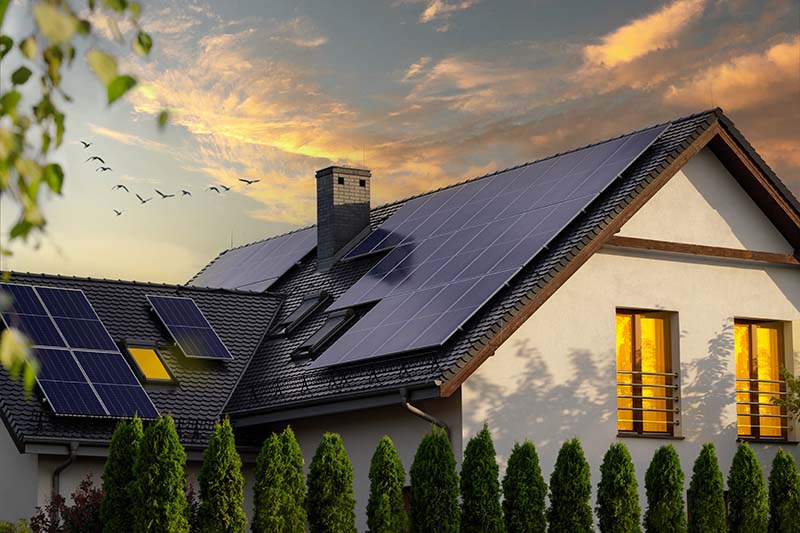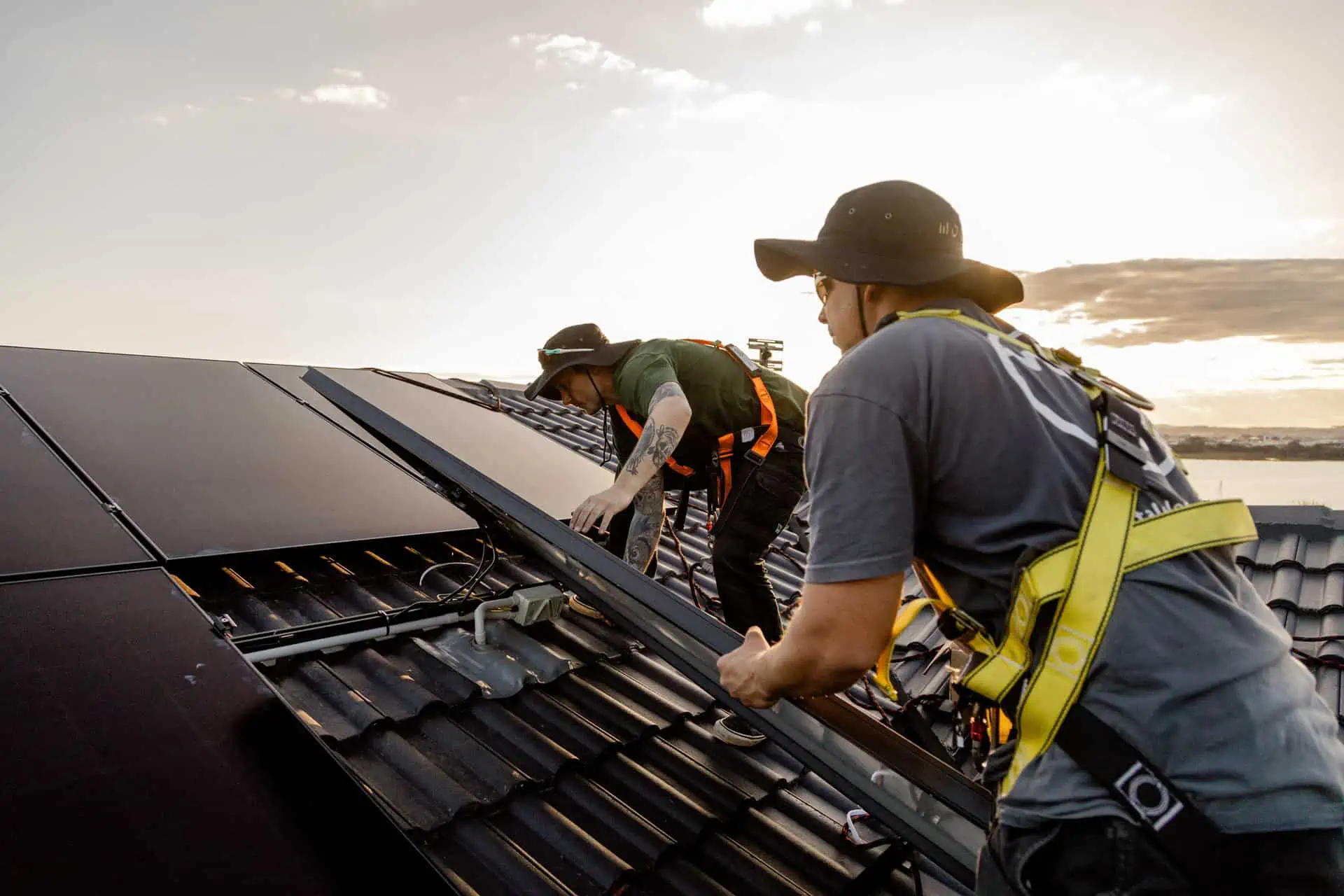Explore affordable options for energy savings with Solar Panels.
Maximize Power Cost Savings With High-Quality Solar Panels
Maximizing power cost savings via the usage of high-grade solar panels is a complex method that needs cautious factor to consider of technology, setup, and maintenance. Choosing high-efficiency choices, such as monocrystalline panels, can dramatically improve electricity generation, while resilience and service warranty terms play an important function in long-lasting economic practicality.
Advantages of Solar Energy
The benefits of solar power are various and considerable, making it a progressively eye-catching choice for both property and commercial applications. Among the key benefits is its prospective to lower electricity expenses. By taking advantage of sunshine, homeowner can create their very own power, reducing dependence on standard energy resources and ultimately causing significant savings.
One more important advantage is ecological sustainability. Solar power is a tidy, renewable energy that helps to mitigate greenhouse gas exhausts, adding to a decrease in air pollution and climate modification. This aligns with global initiatives to shift in the direction of more sustainable energy services.
Additionally, solar power systems can boost building worth. Residences and companies equipped with photovoltaic panels frequently have higher resale values, appealing to environmentally-conscious customers and investors. Federal government motivations, such as tax obligation credit ratings and refunds, can balance out installment prices, making solar energy even more economically feasible.
Last but not least, solar technology advertises power self-reliance. By buying solar energy, people and services can lower their vulnerability to changing energy prices and supply interruptions, fostering better control over their energy sources. Jointly, these advantages emphasize the engaging factors to think about solar energy services.
Choosing the Right Solar Panels
Picking the best solar panels is an essential step in optimizing the performance and benefits of a solar power system. When reviewing solar panels, several factors ought to be taken into consideration to guarantee optimal efficiency and long-term cost savings.
First, assess the panel's performance ranking, which shows how effectively it transforms sunshine into electricity. Higher effectiveness panels may have a greater upfront price however can produce more energy in minimal area. Next, check out the guarantee provided by the manufacturer; a longer warranty generally mirrors a greater level of self-confidence in the product's durability and performance.
Furthermore, take into consideration the type of photovoltaic panel modern technology. Monocrystalline panels are understood for their high efficiency and space-saving design, while polycrystalline panels tend to be extra budget-friendly but somewhat much less reliable. Bifacial panels, which capture sunshine from both sides, are likewise gaining popularity for their potential to improve power result.
Finally, perform a detailed testimonial of independent efficiency scores and client testimonials to evaluate reliability and complete satisfaction. By meticulously thinking about these aspects, home owners can make informed choices that line up with their energy demands and financial objectives, discover this info here ultimately boosting the roi for their solar power systems.
Comprehending Installment Expenses
Recognizing the prices connected with setting up photovoltaic panels is crucial for home owners looking to purchase renewable resource. The total installment expense can differ dramatically based on numerous elements, consisting of system size, panel type, setup intricacy, and geographical place.
Generally, the price is calculated on a per-watt basis, with average prices ranging from $2.50 to $3.50 per watt prior to any incentives. A common residential system may set you back in between $15,000 and $25,000, depending on energy needs and the chosen parts.
In addition to the panels themselves, homeowners need to take into consideration costs connected to inverters, mounting hardware, and electrical upgrades. Labor costs additionally play a vital duty, as professional setup guarantees conformity with safety and security requirements and local regulations.

Eventually, recognizing these installation prices and prospective monetary benefits is necessary for home owners to make enlightened decisions concerning transitioning to solar power.

Maintenance for Long-Term Cost Savings
Preserving solar panels is crucial for taking full advantage of long-lasting power savings and making certain the system operates at peak effectiveness. Normal upkeep involves several essential methods that can significantly improve the long life and efficiency of solar installments.
First, routine inspections must be performed to determine any kind of physical damage or wear, such as splits or loose connections. Cleaning the panels is likewise vital, as dust, dirt, and particles can obstruct sunlight, reducing power output (Solar Panels). It is recommended to clean the panels at the very least two times a year, or a lot more regularly in locations with high levels of dust or contamination
Furthermore, monitoring the system's efficiency via a tracking software application can give real-time information on power production and alert house owners to any kind of abnormalities. This proactive technique enables timely fixings, reducing downtime and preserving optimum power generation.
Ecological Impact of Solar Power
The ecological impact of solar power expands much beyond its instant advantages of minimizing electrical energy bills and dependence on nonrenewable fuel sources. By using sunshine, solar power considerably lowers greenhouse gas exhausts, thereby minimizing environment change. Unlike standard energy resources such as coal or gas, solar power generation does why not try these out not create air pollutants, adding to improved air quality and public health.
Furthermore, solar power useful site advertises biodiversity by decreasing the demand for fossil gas extraction, which usually interrupts environments and habitats. By transitioning to renewable resource sources, we can maintain all-natural landscapes and shield jeopardized varieties from habitat loss.
The life cycle of solar panels likewise offers a reduced ecological footprint compared to traditional energy resources - Solar Panels. While producing photovoltaic panels involves some resource use and emissions, improvements in modern technology and reusing procedures are constantly reducing these influences. In addition, the long-term advantages of solar power-- such as decreased reliance on limited sources-- far outweigh these preliminary prices
Final Thought
In summary, the fostering of premium solar panels provides substantial chances for power savings and ecological benefits. The calculated alignment of solar panel selections with energy requirements and federal government incentives boosts return on investment, advertising sustainability and lowering reliance on standard energy sources.